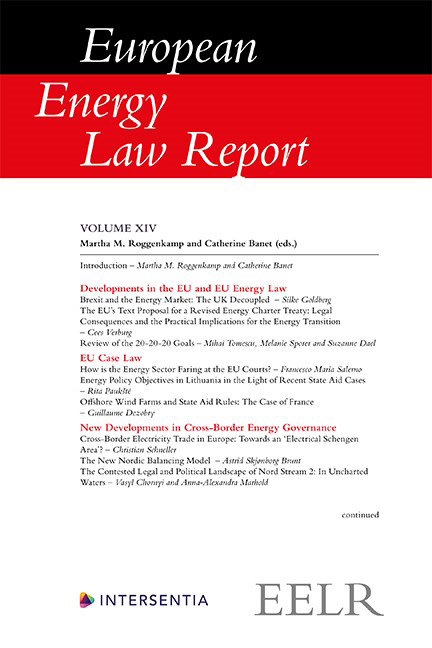Chapter XIII - Green Hydrogen Developments in the EU: Cross-Border Cooperation between Germany and the Netherlands
Published online by Cambridge University Press: 26 May 2022
Summary
INTRODUCTION
Soon we will have not one but several world leaders in hydrogen: Germany, the Netherlands, Japan, Norway and France have all declared the aim to become ‘the world leader’. Between 2018 and 2020, these countries revealed hydrogen strategies that outline (sometimes in great detail) how they are going to be ‘the world leader’ in hydrogen in the near future It is thus becoming crowded at the top.
Hydrogen has a long history of great government ambitions. Since the 1970s, we have been hearing a constant stream of news that hydrogen will be ‘the next big thing’ in energy. While these ambitions certainly went through several boom and bust cycles, in the end they never materialized. So why even bother discussing hydrogen, yet again, as the new ‘saviour’ to decarbonize the energy sector?
What is different this time around are two things. First, governments seem to have finally understood the importance of green hydrogen as a tool to ‘green’ their industries, particularly the heavy industries that consume a lot of energy, like cement and steel factories. Second, governments are willing to put money on the table to achieve their hydrogen ambitions and there are more or less clear pathways for what will be achieved – and when.
This chapter looks at the EU and two of its future ‘world leaders’ in hydrogen – Germany and the Netherlands – and their plans for cross-border cooperation in hydrogen. The EU developed an umbrella strategy for hydrogen and both the Dutch and the German national hydrogen strategies tie in with it, so a comparison of all three strategies seems timely. Moreover, the comparison is interesting because technology-savvy Germany has been working for years on hydrogen technology and with its (comparable high) amounts of renewable energy in today’s energy mix is already well placed for the production of ‘green’ hydrogen. At the same time, we see that the Netherlands, a country that is quick to embrace new technologies, could end domestic natural gas production from the biggest domestic gas field, the ‘Groningen field’, as early as 2022.
- Type
- Chapter
- Information
- European Energy Law Report , pp. 267 - 294Publisher: IntersentiaPrint publication year: 2021



